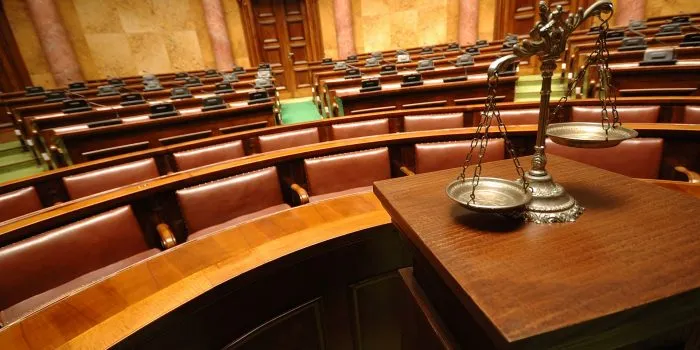Criminal Procedure in Criminal Cases
by SKU
Published: Dec 11, 2017 | Updated: Nov 8, 2022 |

Sharing is Caring!... Don't Care, Share & Save
What Happens After Being Arrested for a Crime in NY?
The Arrest
You were arrested because a police officer had probable cause to believe that you committed a violation, misdemeanor, or felony. If you are charged with a misdemeanor or felony it is probable that you will be formally arrested and physically detained and later arraigned and required to post bail to ensure future appearances in court. If you are charged with a violation, you may not have been formally arrested and physically detained, but you may have been given a ticket that requires you to appear in court at a specific date, time, and location.
Booking
If you are charged with a misdemeanor or felony, at some point you will be taken to the police station for booking where your fingerprints and photograph will be taken. A report of your criminal history (rap sheet) will also be prepared.
The Arraignment
If you have be formally arrested and physically detained you will usually be arraigned within twenty-four (24) hours of your arrest. The purpose of the arraignment is to formally advise you of the charges against you and to decide whether you will be released pending prosecution. The judge will have to decide whether he will release on your own recognizance without bail, whether he will set bail to ensure your future appearances in court, or whether he will hold you in jail without bail (remand).
Plea Bargaining
After the arraignment, your case will usually be adjourned for further proceedings. Upon the return to Court, your lawyer and the prosecutor will discuss settlement of your case. The plea bargain is the settlement. Usually the defendant will agree to plead guilty to a lesser offense in satisfaction of all the charges. The plea agreement must also be approved by the judge.
The Grand Jury
If you are charged with a felony and your lawyer and the prosecutor are unable to reach an agreement on the plea, your case will be presented to the Grand Jury.
The grand jury is made up of sixteen (16) to twenty-three (23) people who listen to the evidence of the prosecutor and decide whether to put you on trial for a felony. If the grand jury decides that there is enough evidence, they will vote for an indictment. You may not be put on trial for a felony in the State of New York without having first been indicted by the Grand Jury, unless you give up that right.
Pretrial Motions
Pretrial motions are motions made by your lawyer to the Court designed to weaken the prosecutions case against you or to have the charges dismissed against you altogether. There are many different motions that can be presented to the court and some of them will require a hearing.
Trial
If your case survives pretrial motions, and you continue to refuse to plead guilty, your case will go to trial. A judge or a jury will decide whether or not the prosecutor has proven your guilt beyond a reasonable doubt.
If you are charged with a felony and refuse to waive your right to a jury trial, twelve (12) jurors will decide your case. If you are charged with a class A misdemeanor, and refuse to waive your right to a jury trial, six (6) jurors will decide your case. If you are charged with a Class B misdemeanor or less, your case will be tried before a judge.
Sentencing
If you plead guilty, or are found guilty after trial, you will be sentenced. If you are convicted of a misdemeanor or felony the Department of Probation will usually prepare a pre-sentence report for the judge containing information about your background and the circumstances of the crime. Your lawyer and the prosecutor may also prepare pre-sentence memoranda for the judge.
The sentence you receive will depend on your background, and the circumstances of the crime. The types of sentences include jail or prison terms, probation, conditional discharge, unconditional discharge, restitution and fines.
Appeal
After you are sentenced, you have a right to appeal your conviction or sentence, unless you have waived the right to appeal as part of a plea bargain. Some rights of appeal may never be waived.
Sharing is Caring!... Don't Care, Share & Save